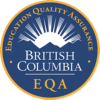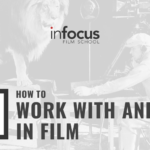The Top 5 Must-Know Women Filmmakers

by Petar Petrov
When people think of successful women in the film industry, the first image that comes to mind is probably something along the lines of a talented actress which is like a robust tool in the hands of a master director. And even though that’s a vocation many would kill for, women filmmakers have long shown women are not only capable of being a film’s driving force, but in fact, they can drive it to places many men would have a hard time reaching.
Here is our selection of the top 5 women filmmakers:

Click here to learn more about InFocus Film School’s Film Production Program!
1. Jane Campion
Jane Campion is one of the most renowned filmmakers of our time. Even if she doesn’t step foot on a film set ever again, she has left a stamp which could never fade away.
Her film The Piano (1993), which she wrote and directed, is a masterpiece in every sense of the world. It tells a poignant and truly unique story of a mute woman who voices her inner world with her piano. But the movie is not even about music per se but about the complexity of love and human emotions which music is the universal expression of. With amazing soundtracks, haunting cinematography, powerful acting, and an otherworldly, yet very human narrative, Campion has managed to a create a film which would be ground-breaking even today.
Looking at one of her other famous films, Bright Star (2009) (which she wrote and directed as well), a palpable thread emerges. Campion is fascinated by love—not a cheesy, rom-com version of it, but its dramatic, almost painful essence that perhaps only art can truly capture. This makes her work universally relatable, even when her stories take place in the countryside two centuries ago.
2. Catherine Hardwicke

Catherine Hardwicke tends to explore stories through the eyes of women whose perspectives easily immerse both men and women alike. Few filmmakers have made their merit known as instantly as her.
Thirteen (2003), the very first film she directed and also co-wrote, was a major success. It’s a dramatic exploration of a girl’s relationship with her mother as she goes from a sweet, innocent girl to a troubled teenager almost overnight. Not only is the story very relatable, but the film blends creative expression with a borderline documentary feel, making for a viewing experience only a very mature and skillful director could deliver.
Hardwicke later showcased her flair for the fantasy realm by directing Twilight (2008) and Red Riding Hood (2011). Regardless of what people’s feelings about the films may be, hardly anyone could say the directing was the issue. In fact, both movies offer exactly the kind of immersive, dream-like style that is so pivotal to the fantasy genre.
Hardwicke’s latest feature Miss You Already (2015) is a beautiful story of the type of friendship everyone—men or women—dreams about. A connection that doesn’t need words and makes everything better—even cancer. Again, like in Thirteen, Hardwicke skillfully manages to escape clichés when examining such a widely-discussed subject and envelops it with the tone it deserves.
3. Angelina Jolie

Even though many might think Angelina Jolie being behind camera is a waste of her beauty, it certainly isn’t a waste of her talent. With films like Unbroken (2014) and First They Killed My Father (2017), Jolie clearly doesn’t shy away from exploring issues of great historical significance. Not only that, she manages to recreate them into visually pleasing films with a broad arsenal of techniques.
Unbroken is reminiscent of a superhero film in the way it provokes instant affinity with the protagonist and his troublesome, yet innately good, nature and inspiring tenacity. The film uses a pleasant golden palette that’s especially evocative in the backstory scenes and heightens the film’s heroic feel.
First They Killed My Father is a powerful story of the dramatic events during the rule of the Communist Party of Kampuchea in Cambodia. Jolie offers exclusive peeks from the perspective of the 7-year old female protagonist by having other characters look right into the camera. The story unfolds seamlessly and certain scenes tell a lot with very “little”—that is, not through spectacle but through emphasis on a narrative detail or great acting, for example. Jolie certainly has to get some credit for the acting as well, considering the interpersonal skills a director needs in order to get performances like these out of such young actors.
4. Sofia Coppola

Perhaps the most famous woman filmmaker, Sofia Coppola has been bringing us great films for two decades. In this time, Coppola has told a wide array of stories, but having written a lot of them as well, there is a very noticeable recurring theme that is precisely what makes her films so haunting. Coppola is drawn to existential human sadness, especially when it’s found in unlikely places.
Lost in Translation (2003) takes over from the very beginning. Bill Murray and Scarlett Johansson do a fantastic job of portraying characters who are deeply sad with no particular reason to be—which makes their sorrow all-the-more relatable. The film is a testament to Coppola’s skillful storytelling through the strong, evocative parallels she draws between two distinct characters who couldn’t have less in common.
Her other classic, The Virgin Suicides (1999), explores a similar concept within a more morbid frame. Both movies feature a signature move Coppola uses to evoke the theme of gilded cages she is so fascinated with: her characters staring through a closed window, as if searching for something they aren’t even sure exists. This often happens as they ride in cars, moving without going anywhere.
5. Katherine Bigelow

With Zero Dark Thirty (2012) and The Hurt Locker (2008) (for which she won an Academy Award for Best Director), Katherine Bigelow has established herself as a director who can turn a spectacularly complex body of facts into films that can be watched as suspenseful and poignant reports. She directs with extreme precision and conciseness—each shot of each scene serves a specific purpose and stays just as long as it needs to.
Zero Dark Thirty doesn’t even have a set ending as events were still unfolding at the time, and the timely fashion in which she managed to get it done is impressive. Her shooting style is befitting of her films’ topics. Her movies have a documentary feel (particularly The Hurt Locker) with rapid hand-held camera movement—perfect for conveying the chaos of war. Bigelow amps up tension by masterfully reflecting it through the characters’ personal experiences, making global events feel closer to home.
Some women filmmakers use their perspective to tell stories that arguably no man could, while others tell the kind of stories which are subject only to quality craft rather than a genre. Whatever the case, these women filmmakers, and many others, are true masters and the best at what they do.
Read more on directors:
Oscars 2018: Comparing the Top 3 Nominated Writer-Directors
The Auteur Theory & Why You Should Become An Auteur Filmmaker






